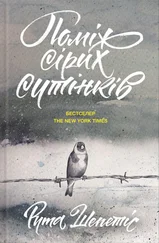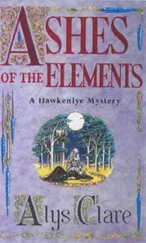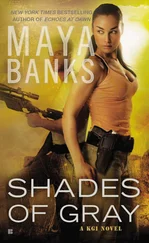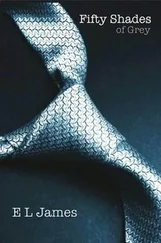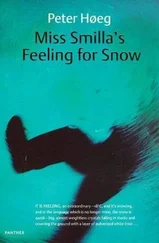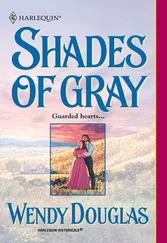Did she hear the last gasp of the old man as he slipped under the wheels of a cart several kilometers back? Did she taste coins in her mouth when she walked over the fresh blood in the snow?
“Heartbreaking. They killed her,” said a voice behind me. It was the old shoemaker. I stopped and allowed him to catch up. “The frozen woman back there,” he continued. “Her shoes killed her. I keep telling them, but they don’t listen. Poorly made shoes will torture your feet, inhibit your progress. Then you will stop.” He squeezed my arm. His soft red face peered out from beneath his hat. “And then you will die,” he whispered.
The old man spoke of nothing but shoes. He spoke of them with such love and emotion that a woman in our group had crowned him “the shoe poet.” The woman disappeared a day later but the nickname survived.
“The shoes always tell the story,” said the shoe poet.
“Not always,” I countered.
“Yes, always. Your boots, they are expensive, well made. That tells me that you come from a wealthy family. But the style is one made for an older woman. That tells me they probably belonged to your mother. A mother sacrificed her boots for her daughter. That tells me you are loved, my dear. And your mother is not here, so that tells me that you are sad, my dear. The shoes tell the story.”
I paused in the center of the frozen road and watched the stubby old cobbler shuffle ahead of me. The shoe poet was right. Mother had sacrificed for me. When we fled from Lithuania she rushed me to Insterburg and, through a friend, arranged for me to work in the hospital. That was four years ago. Where was Mother now?
I thought of the countless refugees trekking toward freedom. How many millions of people had lost their home and family during the war? I had agreed with Mother to look to the future, but secretly I dreamed of returning to the past. Had anyone heard from my father or brother?
The blind girl put her face to the sky and raised her arm in signal.
And then I heard them.
Planes.
We had barely crawled out of the potato cellar when the Polish girl began to cry. She knew I was going to leave her.
I had no choice. She would slow me down.
Hitler aimed to destroy all Poles. They were Slavic, branded inferior. My father said the Nazis had killed millions of Poles. Polish intellectuals were savagely executed in public. Hitler set up extermination camps in German-occupied Poland, filtering the blood of innocent Jews into the Polish soil.
Hitler was a coward. That had been one thing Father and I agreed upon.
“ Proszę… bitte, ” she begged, alternating between Polish and broken German.
I couldn’t stand to look at her, at the streaks of dead Russian splattered down her sleeve. I started to walk away, her sobs flapping behind me.
“Wait. Please,” she called out.
The sound of her crying was painfully familiar. It had the exact tone of my younger sister, Anni, and the sobs I heard through the hallway the day Mother took her last breath.
Anni. Where was she? Was she too in some dark forest hole with a gun to her head?
A pain ripped through my side, forcing me to stop. The girl’s feet quickly approached. I resumed walking.
“Thank you,” she chirped from behind.
The sun disappeared and the cold tightened its fist. My calculations told me that I needed to walk another two kilometers west before stopping for the night. There was a better chance of finding shelter along a field road, but also a better chance of running into troops. It was wiser to continue along the edge of the forest.
• • •
The girl heard them before I did. She grabbed my arm. The buzzing of aircraft engines surged fast and close from behind. The Russians were targeting German ground troops nearby. Were they in front of us or beside us?
The bombs began falling. With each explosion, every bone in my body vibrated and hammered, clanging violently against the bell tower that was my flesh. The sound of anti-aircraft fire rang through the sky, answering the initial blasts.
The girl tried to pull me onward.
I shoved her away. “Run!”
She shook her head, pointed forward, and awkwardly tried to pull me through the snow. I wanted to run, forget about her, leave her in the forest. But then I saw the droplets of blood in the snow coming from beneath her bulky coat.
And I could not.
Ruta Sepetys’s OUT OF THE EASY
The French Quarter simmers with secrets in Ruta Sepetys’s New York Times bestselling novel.
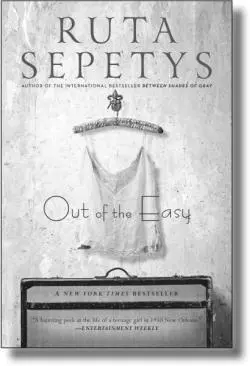
“A haunting peek at the life of a teenage girl in 1950 New Orleans.”
—Entertainment Weekly
“Sepetys’ latest is full of transporting writing, drawing you into a past that is fully reconstructed by her superb imagination.”
—The Boston Globe
“Sepetys writes with rawness and palpable emotional unease… The stakes are momentous.”
—The New York Times Book Review
A New York Times Book Review Editors’ Choice
A Junior Library Guild Book Pick
An Indie Next List Top Ten Pick
Praise and Honors for ASHES IN THE SNOW
(previously published as Between Shades of Gray )
“An engrossing and poignant story of the fortitude of the human spirit in a dark time in Lithuanian history.”
—
Associated Press
“Please read this small window into a tragedy.”
—NPR
 “A harrowing page turner, made all the more so for its basis in historical fact, the novel illuminates the persecution suffered by Stalin’s victims (20 million were killed), while presenting memorable characters who retain their will to survive even after more than a decade in exile.”
“A harrowing page turner, made all the more so for its basis in historical fact, the novel illuminates the persecution suffered by Stalin’s victims (20 million were killed), while presenting memorable characters who retain their will to survive even after more than a decade in exile.”
—
Publishers Weekly , starred review
 “Sepetys’ flowing prose gently carries readers through the crushing tragedy of this tale that needs telling.”
“Sepetys’ flowing prose gently carries readers through the crushing tragedy of this tale that needs telling.”
—
Kirkus Reviews , starred review
 “This is a gripping story that gives young people a window into a shameful, but likely unfamiliar history.”
“This is a gripping story that gives young people a window into a shameful, but likely unfamiliar history.”
—
School Library Journal , starred review
“Sepetys has penned a harrowing and heartbreaking novel. Beautifully written and important.”
—Harlan Coben, internationally bestselling author
“Equally brutal and uplifting… Beautifully written and researched, it captures the devastation of war while celebrating the will to survive.”
—
Family Circle
“A haunting chronicle, demonstrating that even in the heart of darkness ‘love is the most powerful army.’”
—
The Horn Book
“A document long overdue.”
—Richard Peck, Newbery Award–winning author of
A Year Down Yonder
“A compelling love story.”
—
VOYA
“ Between Shades of Gray —billed as a young adult novel, but one that everyone should read… sings with truth.”
—
The Minneapolis Star-Tribune
“Beautiful and unforgettable.”
—Susan Campbell Bartoletti, Newbery Honor–winning author of
Hitler Youth
“Hard to read, but even harder to stop reading, there is no doubt into which category this tremendous first novel belongs.”
—
The Guardian London
“A sweeping work of historical fiction, this meticulously researched novel will leave readers breathless.”
Читать дальше
![Рута Шепетис Ashes in the Snow [aka Between Shades of Gray] обложка книги](/books/414915/ruta-shepetis-ashes-in-the-snow-aka-between-shades-cover.webp)

 “A harrowing page turner, made all the more so for its basis in historical fact, the novel illuminates the persecution suffered by Stalin’s victims (20 million were killed), while presenting memorable characters who retain their will to survive even after more than a decade in exile.”
“A harrowing page turner, made all the more so for its basis in historical fact, the novel illuminates the persecution suffered by Stalin’s victims (20 million were killed), while presenting memorable characters who retain their will to survive even after more than a decade in exile.”